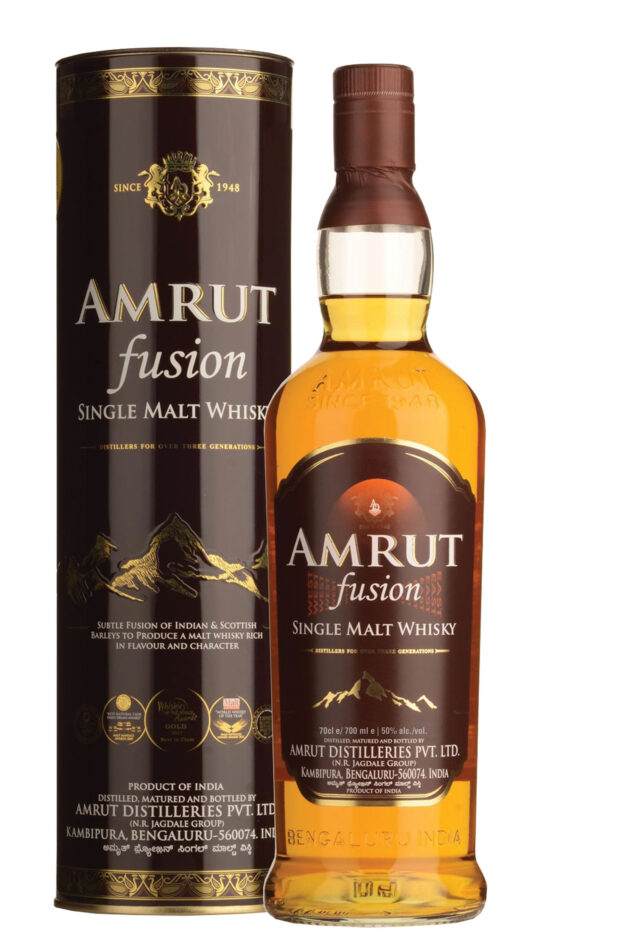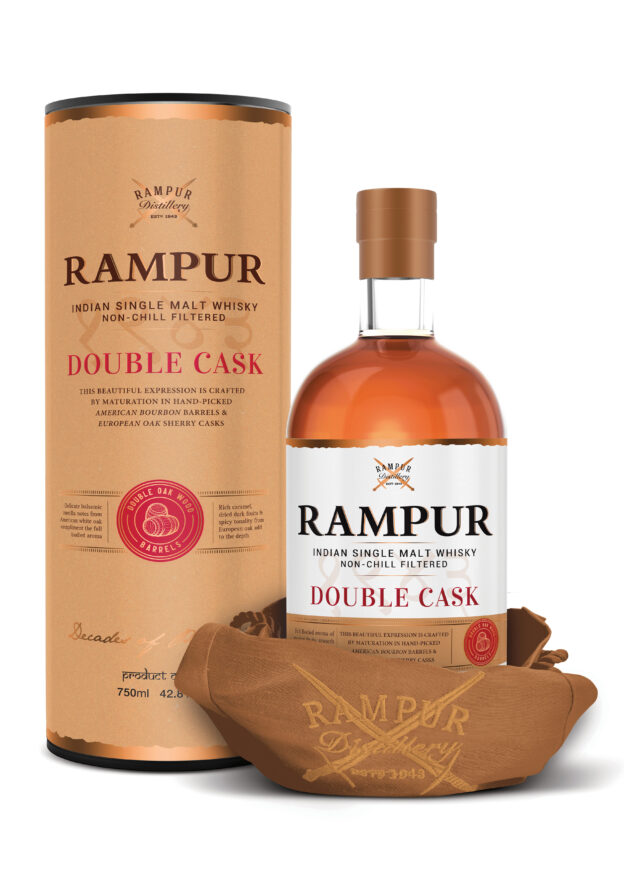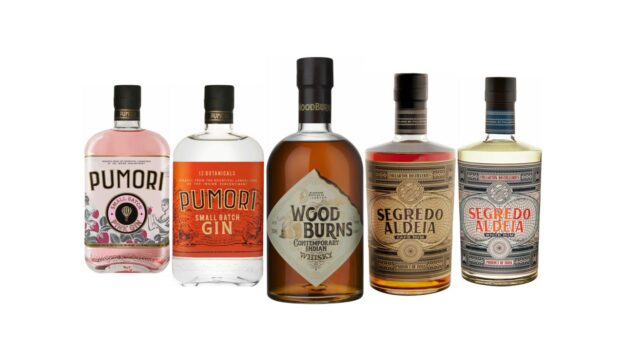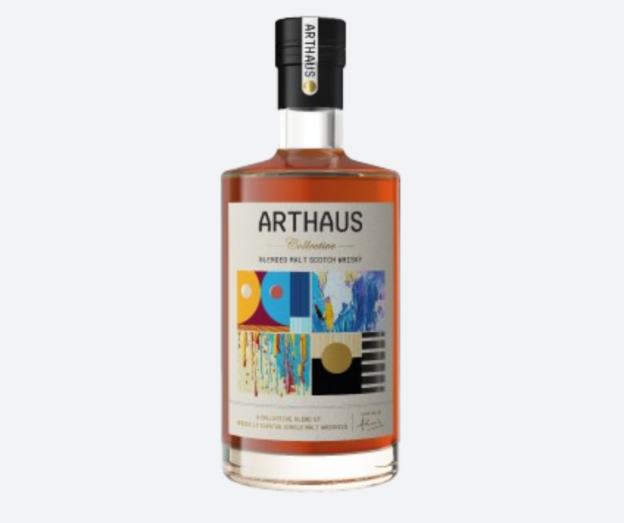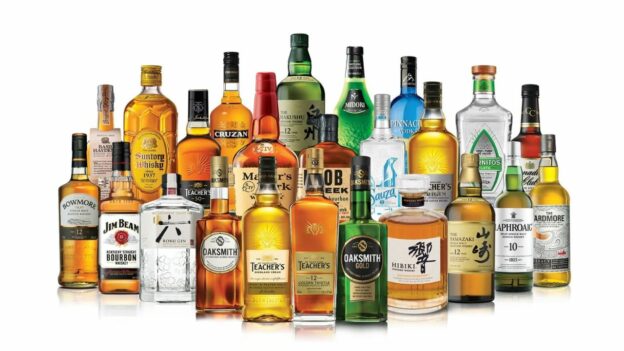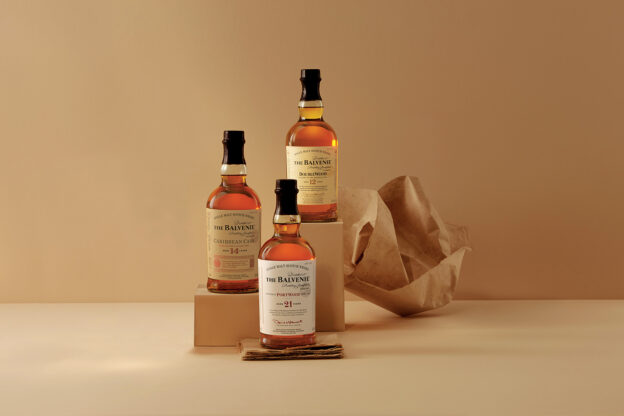In a podcast conversation with Bhavya Desai, Rakshit Jagdale, Managing Director of Amrut Distilleries, has spoken at length about the company’s expansion plans and the journey of how a practical project during his MBA days in the UK led to the first-ever launch of an Indian Single Malt whisky, charting a path which many others have followed subsequently, making India proud of its strides in the alcobev sector.
engaluru-based Amrut Distilleries, the firm that put Indian Single Malt whisky on the global map, is in an expansion mode. Beginning April 2025, Amrut Distilleries is adding 35% more to its distillation capacity, taking it from 900,000 litres to about 1.4 million litres, according to its Managing Director, Rakshit Jagdale. It was only in 2018, the company had trebled its distillation capacity.
`1,000 crores net sales target
Amrut Distilleries’ current business in volume terms is over 6.3 million cases per annum with turnover at ₹540 crores net sales, gross sales being ₹1,750 crores. “The projections are to touch ₹1,000 crores net sales in about 10 years’ time, growing at 10 to 15%. We are quite confident, we will sustain. For us bottom line is important. We can chase turnover with economy, but we want to have strong EBITDA. There is scope for luxury and premium segment to grow further and strengthen the bottom line.”
Dilution of stake
Asked whether the closely-held family concern would be diluting its stake, Jagdale said, “There has been a lot of interest in our group over the past six to seven years. We have had discussions at the family board level, but we have not taken that call yet. We cannot shy away for too long. We are looking at a partner who will add value to the brand and also give global market accessibility, if at all we go that way.” IPO (initial public offering) is another route which the company is looking at it from a long- term perspective. “We are not there as yet. I personally feel, it will be a couple of years more, before we take that call.”
Meanwhile, Amrut Distilleries is also exploring avenues to set up a new distillery to cater to the bulk market. “We are seriously looking at the bulk side, impending the Free Trade Agreement (FTA) with the United Kingdom.”
FTA and its impact
On whether there would be a downward revision in the prices of premium whisky in India, post FTA, Jagdale said, “It is certainly round the corner and it will post a fair bit of challenges. Brands like Glenfiddich, coming down from their current levels, will affect. We don’t know what is going to be their strategy, but they will put pressure on us to come down by ₹500 to ₹1,000 from what we are selling at currently. The bottomline will get compromised but we should stay put.” The shelves will have Indian single malts and BIO (bottled in origin) Scotch and consumer preferences around that point of time has to be factored in. “We have to wait and see.”
Weary of unhealthy competition
Stating that the Indian market offered massive opportunities, Jagdale mentioned, “Everybody wants to be in India now. They want to jump on Indian single malt bandwagon. They are serious and we are serious too on what we are doing.” Diageo has launched Godawan Indian single malt whisky, Pernod Ricard is setting up a single malt distillery and there are a host of Indian distillers, about five to seven of them, who will hit the market in the next two to three years. There is Ian Macleod coming. “Competition is most welcome and it keeps you on your toes, improves processes quickly and rapidly. Just hope that it doesn’t go the path of unhealthy competition.”
Amrut’s market focus
Giving details of its market bifurcation, Jagdale stated, “This year, of our total business is 95% domestic and 5% export market. Within the luxury division, we are 35% export and the rest domestic. “In the premium range, we have MaQintosh Premium whisky, Silver Edition whisky, Two Indies Rum, and Nilgiris Dry gin. The mass market category includes Amrut XXX rum, Prestige whisky, Silver Cup brandy. From a volume point of view, we would be 70% economy and from topline point of view 25% would be luxury and 10% would semi-premium and premium categories.”
Pain Points,
Excise Tops the List
Talking about excise duties, Jagdale said, “We are a highly regulated industry. Time has come to deregulate it. We are still following laws enacted by the British, while we have technology. There is a massive trust deficit between the government and the alcobev industry, hoping that the perception the governments have about the industry changes. Hopefully, it will have happen in my lifetime, would like to see that happen.” Agreeing that presently the governments are willing to listen to the industry and amend rules, he said, “there is hope.”
South Heavily Taxed
Jagdale stated that the southern states are highly taxed. “If you look at Punjab, Haryana and other northern states, the taxes are not as high as here. For instance, if the MRP (maximum retail price) is ₹100, the manufacturer gets roughly about ₹11, the retailer gets ₹9, the rest goes to the government. Agreed that the government has its own compulsions of running welfare programmes and other schemes, we appreciate that, but there has to be a balance going forward.” The governments, unlike earlier days are now open to dialogue which can only get positive, he hoped.
Is alcobev profitable business?
Quizzed about whether the alcobev sector is a profitable business, considering that it highly regulated, Jagdale’s advice is “Get into the premium and luxury segment. It is not worth to be in the mass market. You may achieve volumes in a couple of years, but you are not going to make any money. It takes minimum of four years, one should have the patience and the ability to invest for that long a time.”
His guestimate is that a 1000 litre per day plant will require a minimum capex investment of ₹25 crores and there would be working capital. “There is no guarantee that it will succeed in four years’ time. One should have the patience.” The route budding entrepreneurs could take is getting in gin manufacturing or matured rum category or vodka at the premium end. “Then you can pick up white, brown and dark spirits.”
The consumer of today
Emphasising the need to go premium, Jagdale explained that the present day consumer is highly discerning. “Globally we see a lot of youngsters have taken up to single malt whisky in a very big way, especially in the US, India, Europe. One thing we have observed with the advent of internet, is that the knowledge levels of the consumer has gone up significantly. Youngsters know more about whisky and other spirits much more. This keeps us on our toes. The consumer profile has changed. The younger generation is willing to spend more, drink better, drink less as they are health conscious too.”

